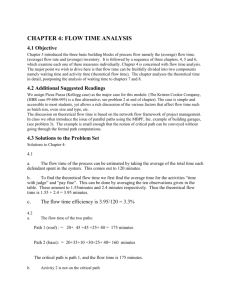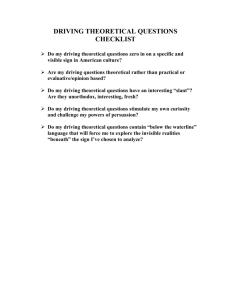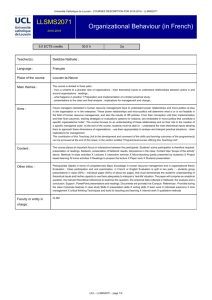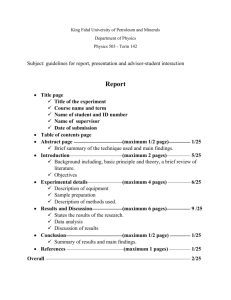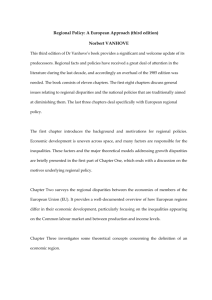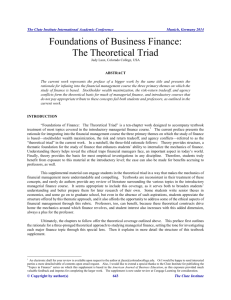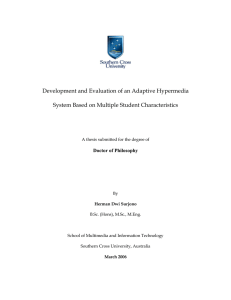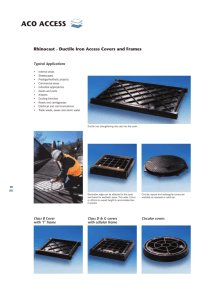Research writing assignment paper 2
advertisement
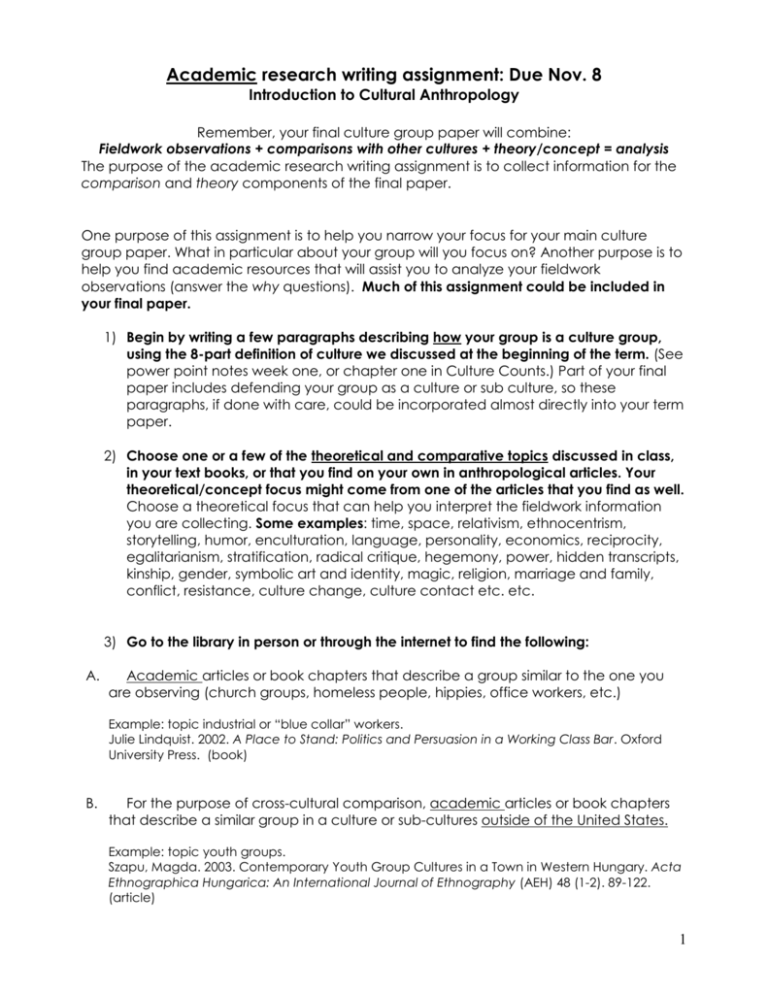
Academic research writing assignment: Due Nov. 8 Introduction to Cultural Anthropology Remember, your final culture group paper will combine: Fieldwork observations + comparisons with other cultures + theory/concept = analysis The purpose of the academic research writing assignment is to collect information for the comparison and theory components of the final paper. One purpose of this assignment is to help you narrow your focus for your main culture group paper. What in particular about your group will you focus on? Another purpose is to help you find academic resources that will assist you to analyze your fieldwork observations (answer the why questions). Much of this assignment could be included in your final paper. 1) Begin by writing a few paragraphs describing how your group is a culture group, using the 8-part definition of culture we discussed at the beginning of the term. (See power point notes week one, or chapter one in Culture Counts.) Part of your final paper includes defending your group as a culture or sub culture, so these paragraphs, if done with care, could be incorporated almost directly into your term paper. 2) Choose one or a few of the theoretical and comparative topics discussed in class, in your text books, or that you find on your own in anthropological articles. Your theoretical/concept focus might come from one of the articles that you find as well. Choose a theoretical focus that can help you interpret the fieldwork information you are collecting. Some examples: time, space, relativism, ethnocentrism, storytelling, humor, enculturation, language, personality, economics, reciprocity, egalitarianism, stratification, radical critique, hegemony, power, hidden transcripts, kinship, gender, symbolic art and identity, magic, religion, marriage and family, conflict, resistance, culture change, culture contact etc. etc. 3) Go to the library in person or through the internet to find the following: A. Academic articles or book chapters that describe a group similar to the one you are observing (church groups, homeless people, hippies, office workers, etc.) Example: topic industrial or “blue collar” workers. Julie Lindquist. 2002. A Place to Stand: Politics and Persuasion in a Working Class Bar. Oxford University Press. (book) B. For the purpose of cross-cultural comparison, academic articles or book chapters that describe a similar group in a culture or sub-cultures outside of the United States. Example: topic youth groups. Szapu, Magda. 2003. Contemporary Youth Group Cultures in a Town in Western Hungary. Acta Ethnographica Hungarica: An International Journal of Ethnography (AEH) 48 (1-2). 89-122. (article) 1 C. Academic articles or book chapters that help enhance your theoretical/concept tools for cultural interpretation. Example: topic skateboarding and other aspects of city life viewed through theory/concepts related to human spatial behaviors and proxemics. Arkette, S. 2004. Sounds Like City. Theory, Culture and Society 21 (1): 159-+ Feb. (article) 4) Find at least one article or book chapter(s) for each category, A, B, and C. Write a synopsis of each article/chapter. Include an explanation of how the information in each article might be used within your final paper. Synopses should include summaries of main points and descriptions of how the information might help you describe, define, and interpret your own observations. Write at least 4½ pages total for the entire research writing assignment. Your paper should be in 12 point type with 1 inch margins. 5) Practice citing your sources within your text. Include a bibliography at the end. Getting help: You can take this assignment sheet to the librarians, who are more than willing to help you with research tools. You may also ask me for assistance. Come visit me in room 206, upstairs in Building 23, especially between 10 a.m. to 10:50 a.m. Monday through Friday, or from noon to 1 p.m. Tuesdays and Wednesdays. We can also arrange a time if you cannot make office hours. You may also contact me by email (classdiscourse@yahoo.com) to talk about your sources, your culture group, your theoretical/topic focus, or to ask for assistance in finding sources. I am happy to help. The writing center is an excellent resource for assistance in putting together your paper. Several students in the past have utilized this resource with positive results. About academic sources In order to identify whether or not the article or book or web source you are looking at is of academic quality (peer-reviewed): 1. Look at the publisher. If the journal or book is published by an academic press – a college or university press – it is likely academic source material. 2. Look at the author’s credentials. Is the author an expert in her/his field, with academic degrees associated with a college or university? 3. In the library catalog post of an article, you can click on the name of the journal to get more information about it. Look to see if it is an academic publication. 4. See the wiki for more information about doing library research. 2
